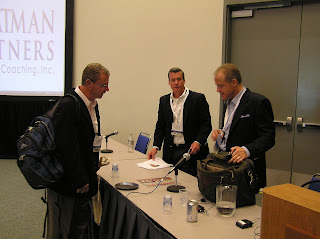Business leaders often talk about the need to simplify. Complexity can be like a mutant cell reproducing rapidly and absorbing everything in its path. Things get so complicated that dense power point slide presentations, exceedingly long meetings, and complex vocabulary proliferate.
Of course, at the deepest level, complexity exists in everything around us. Even single celled amoebas, some of the most basic life forms, are rather complex critters. However, when most of us learned about them in elementary school, we didn’t need to comprehend their every physical process to explain what made them so unique. While sitting in biology class and bored out of my mind, I even took notice of the teacher’s simple message: “amoebas are single cell animals that reproduce without sex. Now that’s memorable!
In today’s business environment, it’s become more difficult to “get to the point” amid the onslaught of complex ideas and concepts.
What to do?
Business leaders must impress upon their people that simplification is a way of life; it is an expectation. This requires instilling core beliefs like, ‘simple isn’t dumber, it’s smarter.” Most importantly, senior leaders must “walk the talk” by demonstrating this skill themselves.
Simplicity creates velocity.
Simple ideas can be communicated and acted on more quickly. They are less prone to misinterpretation and encourage inclusion by ensuring more people comprehend the idea. Simplicity creates more passion, commitment, and achievement.
Executives that value simplicity can be heard saying things like:
“What is your key point in one or two sentences?
“No more PowerPoint, tell me in one or two typed pages!”
“How would you describe this concept to a child?"
Simplicity is a competitive weapon.
Companies that value simplicity move faster than those that don’t.
Embrace simplicity and great business results will follow.









